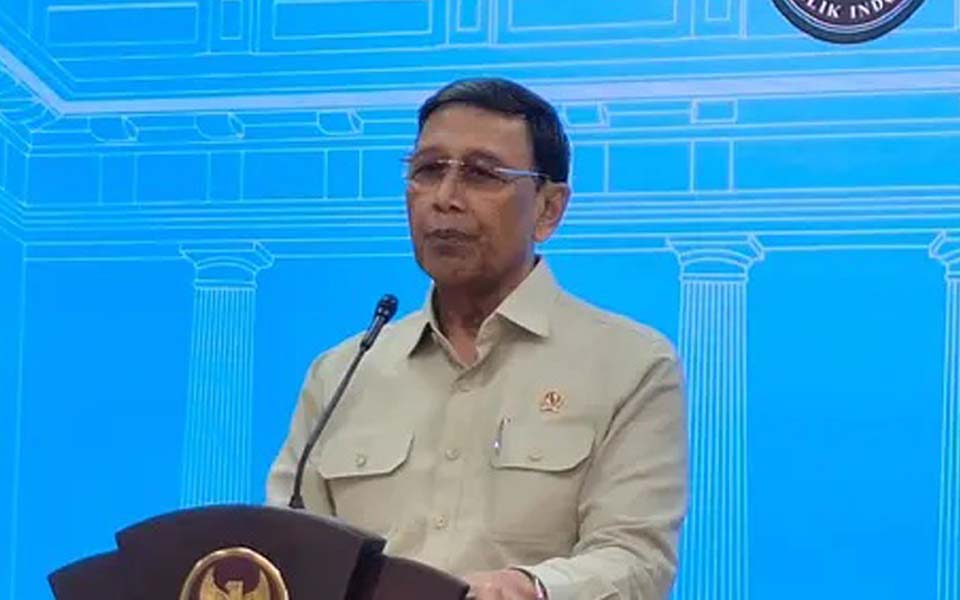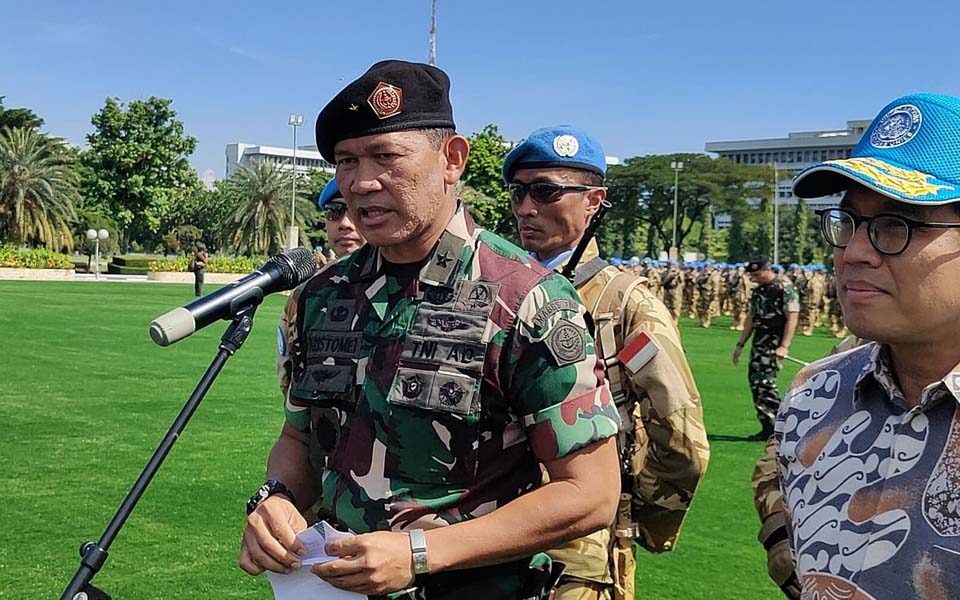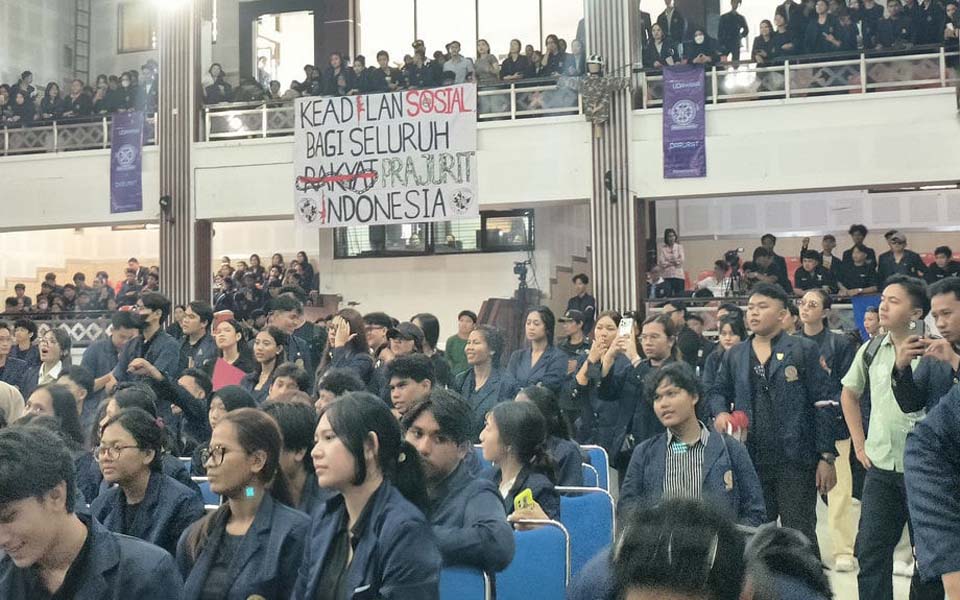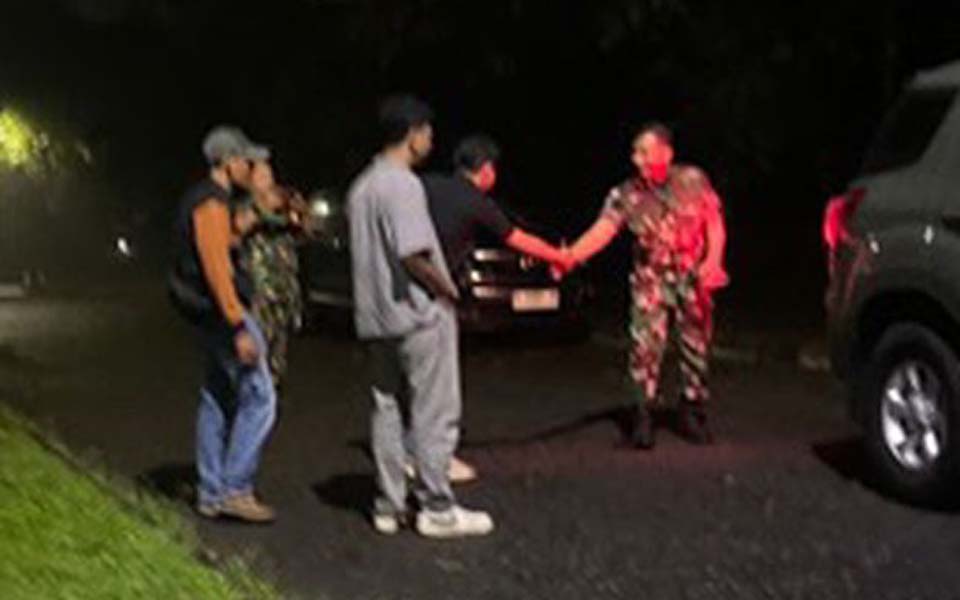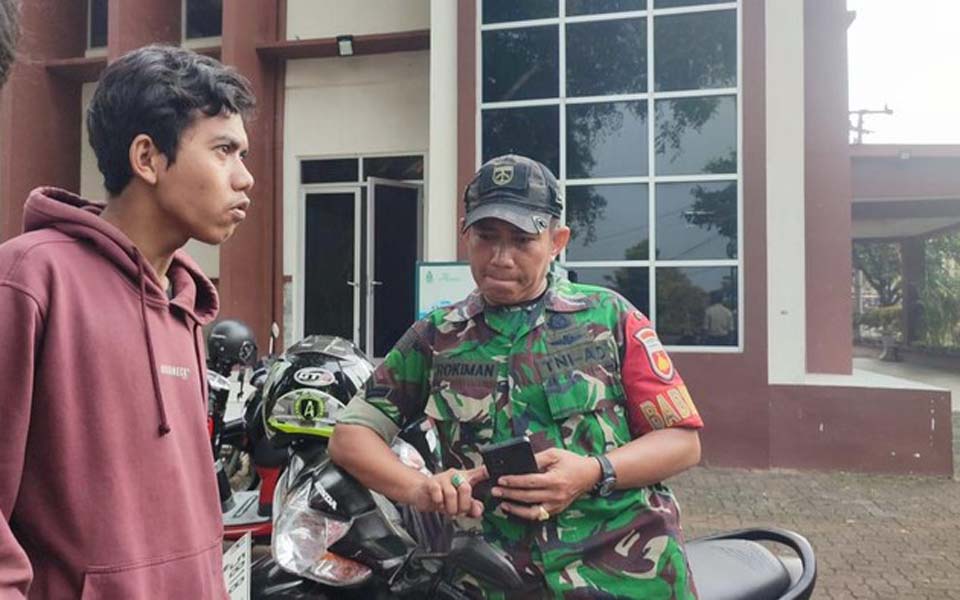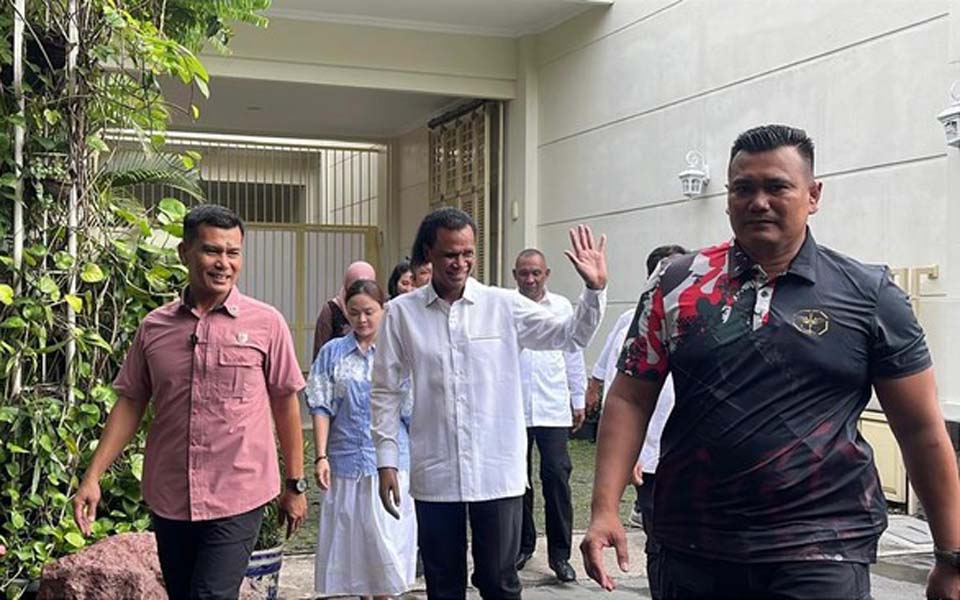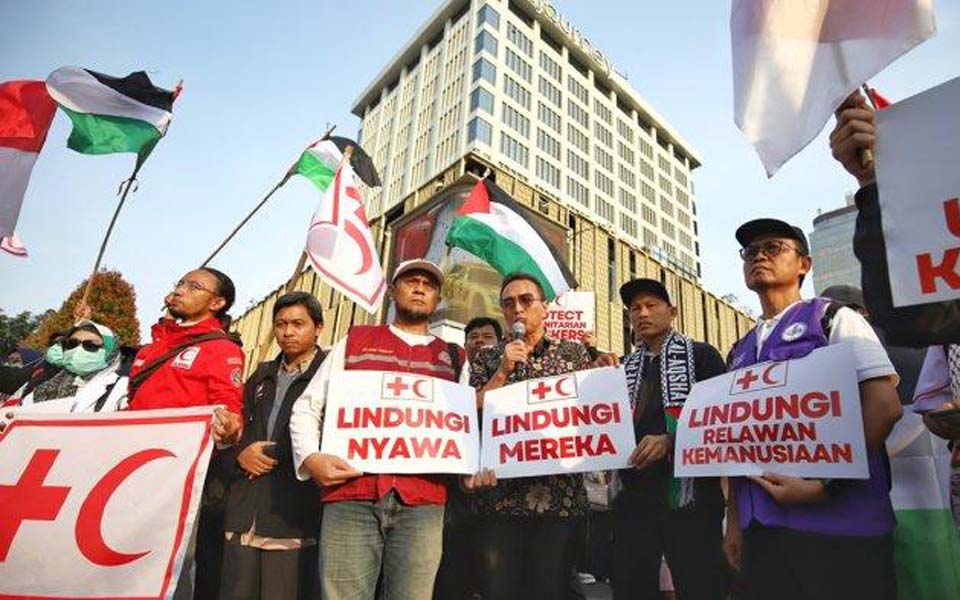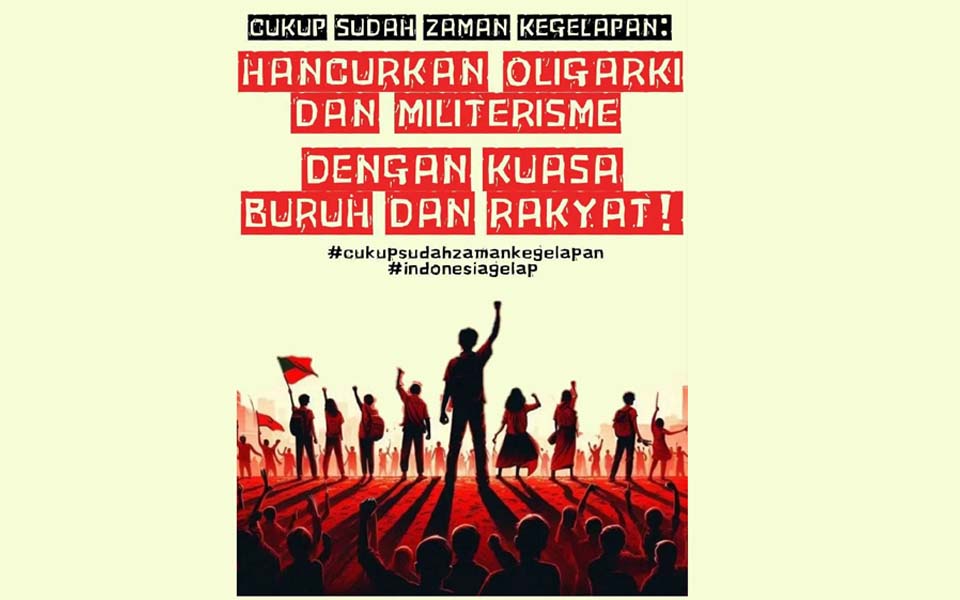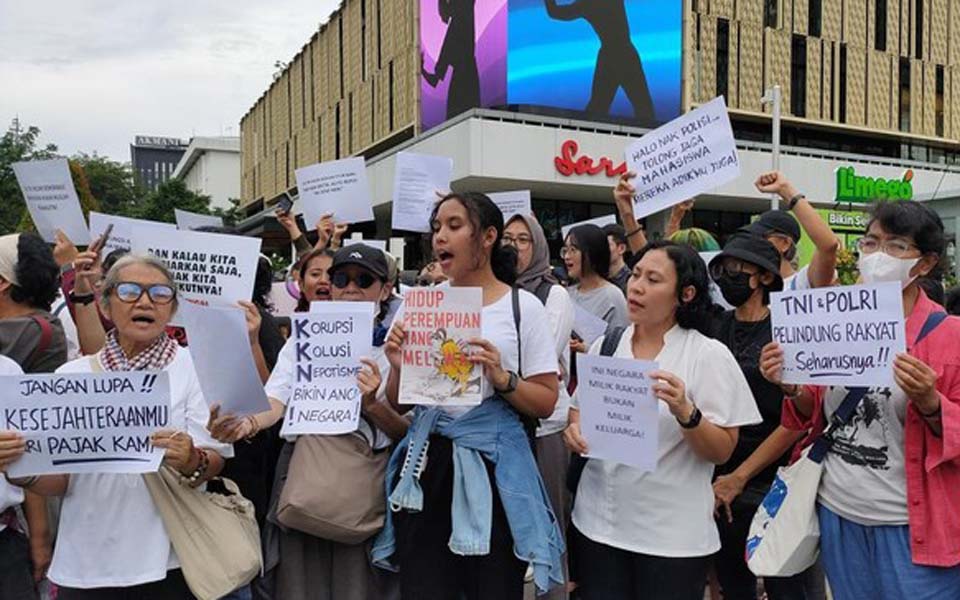M. Raihan Muzzaki, Amirullah, Jakarta – The Udayana University (Unud) in Bali has established cooperation with the Indonesian Army's (TNI AD) Udayana/IX Regional Military Command (Kodam). This cooperation is contained in agreement document number B/2134/UN14.IV/HK.07.00/2025.
The document was signed on Wednesday, March 5, but only announced to the public through the Udayana University's official Instagram account on Wednesday, March 26.
There are several clauses regulated in the document consisting of 20 articles. Article 2, for example, states that there are six areas of cooperation between the Udayana University and the Udayana/IX Kodam, namely from increasing human resources, data exchange and information, to national defence training.
Meanwhile Article 4 Paragraph 3 states that the Udayana/IX Kodam can send active soldiers to attend lectures at the Udayana University ranging from undergraduate programs (S-1) to doctorate programs (S-3). The extended family of the ranks of Udayana/IX Kodam is also allowed undergo studies at the university.
The Udayana University Student Executive Board (BEM) has rejected the cooperation agreement between the campus and the Army. According to them, the agreement opens up opportunities for the military to dominate the realm of civil education.
"This rejection arose in response to our concerns over the inclusion of militarisation in educational institutions, which should remain neutral and free from certain sectoral interests", Udayana University BEM Chairperson I Wayan Arma Surya Darmaputra said in a written statement on Monday March 31.
Darmaputra believes that the agreement established between the two institutions has the potential to disrupt the climate of academic freedom at the Udayana University. According to Darmaputra, the entry of military elements could damage the independence of higher education institutions, especially in this case the Udayana University.
"The lack of clarity about the implementation of this cooperation raises various questions, especially related to the limits of authority and its impact on academic freedom and independence of educational institutions", he said.
The exchange of data and information is regulated in Article 7 of the cooperation agreement document. This clause allows Kodam Udayana/IX to ask for and obtain data regarding the admission of new students at the Udayana University. "[We] reject the TNI obtaining data on new student admissions for no apparent reason", said Darmaputra.
So what then is the danger of the TNI entering university campuses?
Quoting from an April 5 Tempo newspaper article titled After the revisions to the TNI Law: The Army is entering the campuses, the presence of the military on campus is like a repeat of the New Order administration's policies, namely the Normalisation of Campus Life/Student Coordination Board (NKK/BKK) programs. The policy was a move by former president Suharto's administration to silence student criticism of the authorities.
The NKK/BKK program was applied during the period when Daoed Joesoef was the Minister of Education and Culture in 1978. At that time, Joesoef issued Decree Number 0156/U/1978 on the Normalisation of Campus Life. This policy was to make campuses an area sterilised of political activities.
Meanwhile the adverse effects of the NKK/BKK program was the rise of militarism in the campus environment. The Armed Forces of the Republic of Indonesia (ABRI), before the TNI and the National Police (Polri) were separated in 2002, as well as the Civil Intelligence Agency (BIS) monitored student activities regularly. However, the chancellor in each university was responsible for the various prohibitions on campus political activity.
At that time, ABRI also appointed a special officer who was tasked with communicating routinely with the deputy chancellor for student affairs at each college.
Indonesian Caucus for Academic Freedom (KIKA) Coordinator Satria Unggul says that the entry of the military onto campuses will revive the NKK/BKK program as it was during the New Order era. He considers the cooperation between universities and the TNI in national defence education as a new style of NKK/BKK.
According to Unggul, this cooperation has the potential to damage academic freedom. He said the academic world rests on the principle of truth obtained through scientific methods. This principle cannot be harmonised with a commando style military approach.
"This is very much in conflict with the principles of autonomy or university independence", Unggul told Tempo on Wednesday April 2.
Meanwhile, Indonesian Education Monitoring Network (JPPI) National Coordinator Ubaid Matriaki said that national defence training on campus could be an entry point for military values. Because, he said, the TNI has full authority over the implementation of national defence training for students.
He explained that this indoctrination will slowly erode the critical capacity of students or even lead to restrictions on the critical expressions of students towards the government. Matriaki also questioned the issue of data exchanges between the TNI and Udayana University.
According to Matriaki, this cooperation will threaten student privacy and facilitate military supervision of critical students. "The presence of the military on campus can create room for fear for students who are critical of state or TNI policy", said Matriaki.
Meanwhile Indonesian Legal Aid Foundation (YLBHI) Chairperson Muhammad Isnur revealed some of the potential violations of the law with the entry of the TNI into the campus. He said that the recently revised TNI Law that was enacted by the House of Representatives (DPR) does not mention soldiers being given the task of providing education and training to students.
"Filling [educational] material on campus is not their duty. So (the TNI entering campuses) deviates and is contrary to the principle of the TNI Law", said Isnur.
Meanwhile, he said, the provision of state defence material to students violates Law Number 12/2012 on Higher Education. This law guarantees academic freedom, academic free speech and scientific autonomy.
According to Isnur, the delivery of state defence material with a military approach actually limits the scope of the definition of state defence. In fact, said Isnur, the concept of defending the country does not always have to smack of the military.
"Everyone who excels is defending the country. In the field of sports, for example, it's all about defending the country. So this is also a deviation in the world of education", said Isnur.
[Translated by James Balowski. The original title of the article was "Akademikus Bicara Bahaya TNI Masuk Kampus".]
Source: https://www.tempo.co/politik/akademikus-bicara-bahaya-tni-masuk-kampus-1227910






